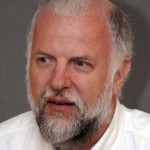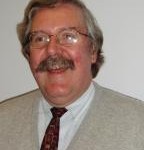Faculty 2009
Our lecturers are hand picked for their in-depth expertise and ability to convey their experiences to maximise the learning experience of our delegates. They also are friendly, approachable and able to have a good laugh! The intensive, yet informal, atmosphere at the XML Summer School gives delegates the opportunity to pick the brains of our expert faculty, both during the classes and afterwards over dinner or in the bar.
Faculty Board members Bob DuCharme, John Chelsom, Eve Maler, and Peter Flynn also teach.
- Adam Retter
-
Adam Retter is an experienced Software Engineer with over a decade’s experience in developing commercial Web Applications. More recently Adam has been focusing on Open Data Applications, and through these efforts became a core developer on the eXist Open Source Native XML Database project in 2005.
Adam is a strong proponent of XML Application Server architectures which power end-to-end XML and XRX Applications. To further advance XML application development, Adam founded the EXQuery project in early 2009 and has since been working with the community and as part of the EXPath project to standardise and improve XML application development with XQuery, XSLT and XPath.
Adam is teaching in the Hands-on Introduction to XML course.
- Dr. Andy Seaborne
-
Andy Seaborne is a member of the semantic web research group at HPLabs where he specialises in query systems and scalable storage of RDF data.
Andy was a member of the W3C RDF Data Access Working Group (DAWG) from the beginning, having worked on RDQL, one of the predecessors of SPARQL; Andy co-edited the query language specification. He continues as a member of the newly formed SPARQL working group.
He also works on Jena, the open source RDF framework for Java, where he has contributed the query engine, ensuring that complete implementations of the standards are available, and several persistent storage sub-systems.
Andy has a PhD in Computer Science from the Computer Laboratory at the University of Cambridge.
Andy is teaching the SPARQL class in the Semantic Technologies course.
- Anthony (Tony) Coates
-
Anthony B. Coates (Tony) is Director and CTO of Londata Limited, a UK consultancy that specialises in XML and data modelling.
Tony is an expert in the design and use of XML, especially for banking and finance, and contributes to the industry by working to advance the standardisation of methodologies for working with XML and electronic messages or documents. Tony is the creator and editor of the OASIS genericode specification for code lists. He is an active participant in the development of the ISO 20022 methodology for model-based design of XML Schemas for banking and finance, and is the Principal UK Expert to the ISO working group (TC68/WG4). He is also a participant in the development of UN/CEFACT’s Core Components Technical Specification (CCTS) and the UN/CEFACT Context Methodology (UCM).
Since moving to London in 2000, Tony has worked on projects for a number of major financial institutions there, as well as for government. Much of this work has been in architecture and design of corporate data models and message sets.
Tony is teaching in the Trends and Transients course.
- Debbie Lapeyre
-
Ms. Lapeyre has been working with XML, XSLT, and XPath since their inception and with SGML (XML’s predecessor) since 1984. Debbie is an architect and developer of XML Tag Sets (vocabularies) who designs and writes the schemas (DTD, XSD, RELAX NG) that model those vocabularies. Most recently, she serves as the architect and as a member of the design team for the NLM Journal Archiving and Interchange Tag Suite, now the de facto standard for tagging journal articles worldwide.
As a document-oriented publishing analyst, Debbie helps clients to analyze their information management, retrieval, and distribution/publication requirements and translates these requirements into functioning production systems, based on XML technologies. As a senior XSLT and XSL-FO consultant, she designs both pages and specifications for complex XSLT transforms and stylesheets as well as develops prototype XSLT applications.
Debbie is a member of the XML Guild. She is also a co-chair of “Balisage: The Markup Conference” and has previously co-chaired “Extreme Markup Languages”, “Markup Technologies”, and the annual international “SGML/XML’XX Conference”. She teaches XML, XSLT, XSL-FO, Schematron, What-is-XML-and-Why-Should-You-Care, and XML print workflows at venues all over the English-speaking world.
Debbie is teaching in the Hands-On Introduction to XML course.
- Dr. Duncan Hull
-
Duncan Hull is a Research Associate in the School of Chemistry at the University of Manchester, UK. His research investigates the
development, use and abuse of Open Biomedical Ontologies, in order to integrate and mine publicly available data on the web. He has a Ph.D. in Computer Science from the University of Manchester on the Semantic description of Web Services in Science and blogs at http://duncan.hull.name. - Dr. Jeni Tennison
-
Dr. Jeni Tennison is an independent consultant. She specialises in XSLT and XML schema development with forays into AJAX and RDF. She trained as a knowledge engineer, gaining a PhD in collaborative ontology development, and since becoming a consultant has worked in a wide variety of areas, including journal publishing, medieval manuscripts, legislation and financial services. She is author of several books including “Beginning XSLT 2.0” (Apress, 2005).
Jeni was an invited expert on the W3C’s XSL Working Group during the development of XSLT 2.0 and was one of the founders of the EXSLT initiative to standardise extensions to XSLT and XPath.
Jeni is teaching in the XSLT, XSL-FO, and XQuery course.
- Leigh Dodds
-
Leigh Dodds is a semantic web geek who is passionate about the web, open standards and open data. Leigh has a strong technical background in developing with Java, XML, and semantic web technologies; has written numerous articles on related topics for IBM developerWorks and XML.com, and has presented at a number of technical conferences. Previously CTO at Ingenta and now works for Talis as a Programme Manager for the Talis Platform.
Leigh is teaching in the Semantic Technologies course.
- Dr. Marc Hadley
-
Dr. Marc J. Hadley is a Java and Web Services Architect at Sun Microsystems. He is currently the specification lead for JSR 311, a Java API for RESTful Web Services and is author of the Web Application Description Language (WADL). Previously Marc represented Sun in the W3C XML Protocol and W3C Web Services Addressing working groups where he was co-editor of the SOAP 1.2 and WS-Addressing specifications. Marc also served as the technical lead for Sun’s participation at the Web Services Interoperability Organisation (WS-I) and was co-spec lead for JSR 224 (JAX-WS) at the JCP.
Marc is teaching in the Web 2.0 and the Web Services and Identity courses.
- Dr. Michael Kay
-
Dr. Michael Kay is the founder and technical director of Saxonica Limited, which develops both the open source and commercial variants of the Saxon XSLT and XQuery processor, as well as offering XML-related consultancy services.
Michael is an invited expert on the W3C working groups developing XSLT, XQuery, and XML Schema. In particular he is the technical lead on the XSL Working Group, which is currently developing a new version of the language to handle streaming transformations of large documents. He is also the author of the definitive reference book on XSLT 2.0, and has written numerous articles and conference papers on XSLT, XQuery, and related technologies. He is a member of the XML Guild, a group of leading independent XML consultants, and joint winner of the XML Cup in 2005, awarded for contributions to the XML community.
Dr. Kay spent nearly 25 years with the British computer manufacturer ICL (later Fujitsu) where he designed and implemented a wide range of data management software products; appointed an ICL Fellow, he was also responsible for advising the company’s senior management and customers on technology strategy. He gained his Ph.D. at the University of Cambridge for research on database management systems, studying under Maurice Wilkes.
Michael lives in Reading, England, 25 miles down the road from Oxford.
Michael is teaching in the XSLT, XSL-FO, and XQuery course.
- Dr. C. Michael Sperberg-McQueen
-
Dr. C. Michael Sperberg-McQueen is the founder of Black Mesa Technologies LLC, a consultancy specializing in information management using descriptive markup, He was a founding member of the XML Working Group at the World Wide Web Consortium (W3C), co-edited the XML 1.0 specification, and serves as an invited expert on the W3C XML Schema and XSL Working Groups. From 1999 through 2009 he was a member of the technical staff at W3C. Before that he worked for twelve years in the Academic Computer Center of the University of Illinois at Chicago, and for two years at Princeton University, where he served as a consultant for humanities computing questions. He also served from 1995 through 2004 as a co-coordinator (with David R. Chesnutt and Susan M. Hockey) of the Model Editions Partnership, and from 1998 to 2003 held a position as visiting researcher at the University of Bergen (Norway).
He has served as co-editor of the Text Encoding Initiative’s Guidelines for Electronic Text Encoding and Interchange (1994), of the W3C Extensible Markup Language (XML) 1.0 specification, and currently serves as a co-editor of the XML Schema 1.1 specification.
He has a Ph.D. in comparative literature but strayed into computing as a graduate student and never came back out.
Michael is teaching in the Open Source XML Applications and the Web 2.0 courses.
- Neil Cowles
-
Neil Cowles is the Chief Executive Officer of Tolven Inc., an open source healthcare software, services and solutions provider that is changing the existing paradigm of healthcare information systems adoption in the global healthcare marketplace. Cowles believes that much as open source technologies such as Linux, J-BOSS, MySQL and PostgreSQL have transformed the technology marketplace, industry specific open source platforms and applications will dramatically impact the healthcare software marketplace.
Born in Norwich, England, Neil Cowles trained and practiced as a radiographer in England and Australia prior to focusing on healthcare management and information technology.
Between 1994 and 1999, Cowles held a number of executive positions with Shared Medical Systems (SMS) in Europe, joining Torex Plc as Technical Director in 1999, a board position where he was responsible for application development, product strategy and outsourcing. He participated in the acquisition and merger of a number of healthcare businesses across Europe.
In 2002, Neil Cowles joined Oracle EMEA (Europe, Middle East and Africa) where he was responsible for developing healthcare business opportunities across Europe, Middle East and Africa. In 2004, Neil Cowles transferred to Oracle Corporation to take responsibility for the global health industries application strategy. Cowles’ strategic responsibilities included both the healthcare and life sciences clinical and business systems.
At the beginning of 2006, Neil Cowles left Oracle Corporation to become one of the co-founders and the Chief Executive Officer of Tolven Inc., which is focused on a consumer-centric, industry standards approach to delivering healthcare information solutions.
Neil Cowles is recognized as a thought leader in healthcare business and technology development and has delivered the key note lecture at a number of international healthcare conferences.
Neil is teaching in the Open Source XML Applications course.
- Norman (Norm) Walsh
-
Norman Walsh is a Principal Technologist in the Information & Media group at Mark Logic Corporation where he assists in the design and deployment of advanced content applications. Norm is also an active participant in a number of standards efforts worldwide: he is chair of the XML Processing Model Working Group at the W3C where he is also co-chair of the XML Core Working Group. At OASIS, he is chair of the DocBook Technical Committee.
Before joining Mark Logic, Norm participated in XML-related projects and standards efforts at Sun Microsystems. With more than a decade of industry experience, Mr. Walsh is well known for his work on DocBook and a wide range of open source projects. He is the principle author of DocBook: The Definitive Guide.
Norm is teaching in the Open Source XML Applications and the Web 2.0 courses.
- Paul Downey
-
Paul Downey is a member of Osmosoft, a small Open Source Innovation team at BT where he contributes to a number of Open Source projects, notably TiddlyWiki. Formally a participant in the standardisation of XML and Web services at the W3C, WS-I and OASIS, Paul now spends his time evangelising the value of REST and the Web through code, presentations and uber-doodles such as the mildly notorious The Web is Agreement.
Paul is teaching in the Trends and Transients and the Web Services and Identity courses.
- Priscilla Walmsley
-
Priscilla Walmsley is a senior consultant and managing director at Datypic, specializing in XML architecture and implementation. She is an expert in XML core technologies (XQuery, XSLT, XML Schema), content management and service-oriented architectures.
Priscilla was a member of the W3C XML Schema Working Group from 1999 to 2004, where she served as an Invited Expert. She is the author of Definitive XML Schema (Prentice Hall PTR, 2001), and XQuery (O’Reilly Media, 2007). In addition, she co-authored Web Service Contract Design and Versioning for SOA (Prentice Hall 2008).
Priscilla is teaching in the XSLT, XSL-FO, and XQuery course.
- Rich Salz
-
Rich Salz has been involved with security and distributed systems for a couple of decades. He has participated in the COM/Corba war, the HTTP specifications, WSDM/WS-Management, the WS*/REST war, and others. Rather than sit on the sidelines, he is usually involved, by either writing specs or implementation. He hopes to just watch the next one from the sidelines, but it’s doubtful that will happen.
He joined IBM with the acquisition of DataPower in 2005, where he is the technical lead for the XML appliance products. He has about 10 times the number of Google hits as Sam Palmisano.
Rich is teaching in the Trends and Transients and the Web Services and Identity courses.
- Simon Phipps
-
Technology futurist Simon Phipps is a well-known computer industry insider and commentator and as well as having a widely-read weblog he speaks frequently at industry events on technology trends and futures. At various times he has programmed mainframes, Windows and on the Web. Currently the Chief Open Source Officer at Sun Microsystems, Inc., he was previously involved in OSI standards in the 80s, in the earliest commercial collaborative conferencing software in the early 90s, in introducing Java and XML to IBM and most recently with Sun’s launching Sun’s blogging site, blogs.sun.com. He lives in the UK, is based at Sun’s Menlo Park campus in California and can be contacted via http://www.webmink.net. The longer version of his bio is at http://www.webmink.net/speaker.htm.
Simon is teaching in the Open Source XML Applications course.














